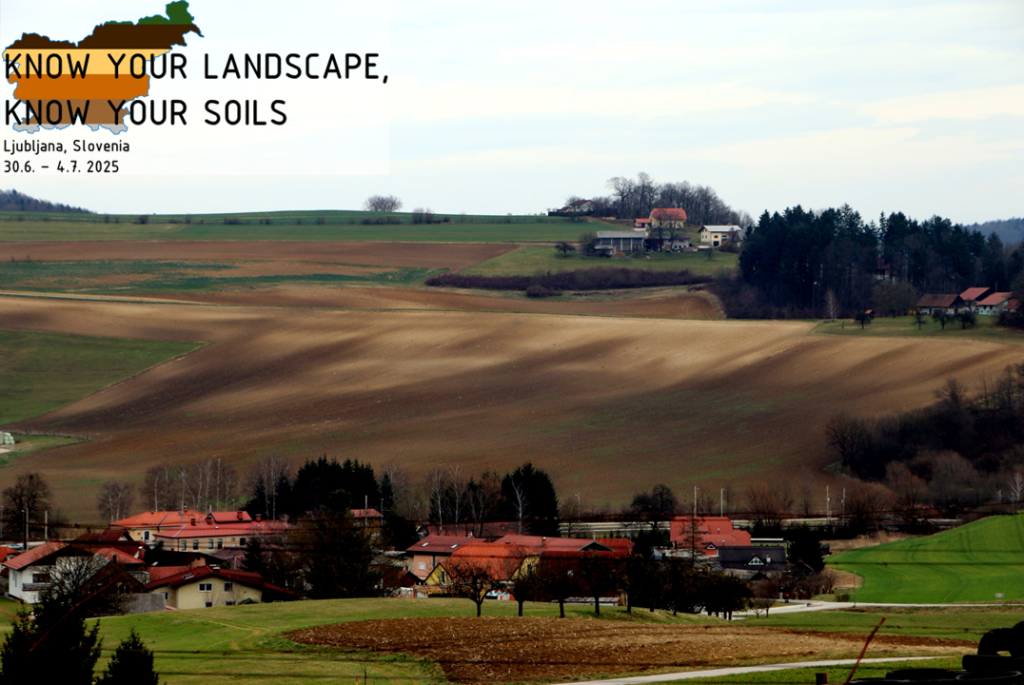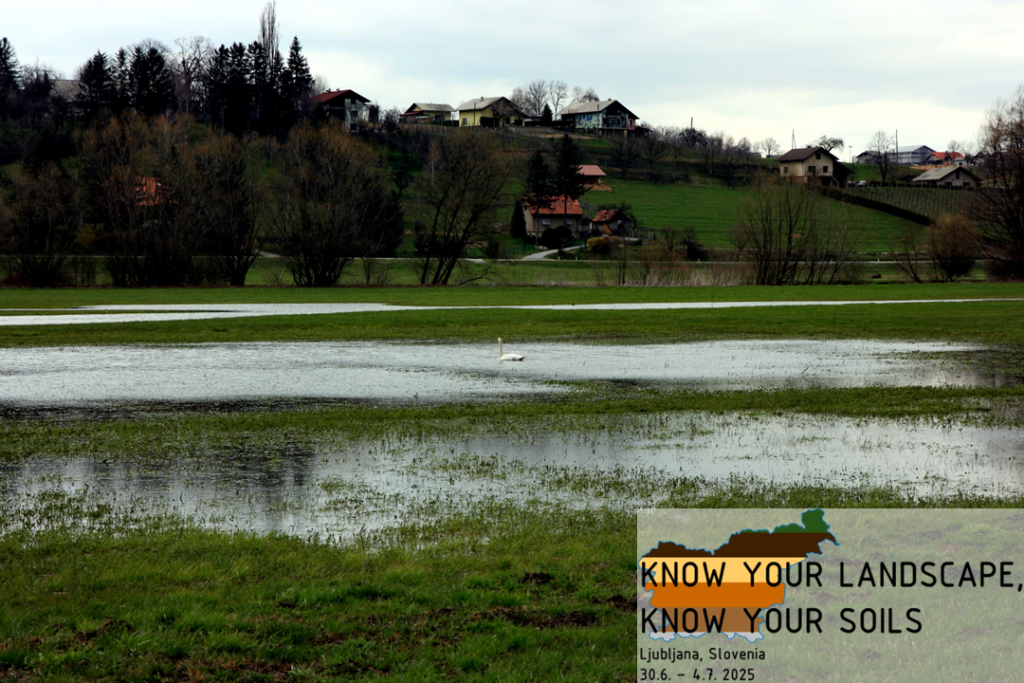

Blended Intensive Course 2025
Erasmus+ Project for HEIs
Name: “Know Your Landscape, Know Your Soils (Geopedological Workshop”
Type of course: blended intensive course (obligatory virtual + physical components)
BIP ID: 2025-1-SI01-KA131-HED-000207643-3
Coordinating University: University of Ljubljana, Faculty of Arts (Slovenia)
Partner Universities:
- Nicolaus Copernicus University, Toruń, Poland,
- Estonian University of Life Sciences, Tartu, Estonia,
- Latvia University of Life Sciences and Technologies, Jelgava, Latvia,
- Poznań University of Live Sciences, Poland,
- Technical University, Braunschweig, Germany
- Martin Luther University, Halle-Wittenberg, Germany
Funding: Erasmus+ short term mobility with a compulsory virtual component, KA131
Participation in classes is free of charge
Accommodation (including breakfasts) and boxed lunches will be organised. Participants have to cover upon arrival the cost of accommodation and lunches with Erasmus+ funding.
1st –20th June 2025 – virtual component
30th June – 4th July 2025 – physical component – University of Ljubljana, Faculty of Arts (Slovenia)
Erasmus+ grant application deadline: may vary depending on the university
Target groups are students (all levels) of environmental related programmes (geography, earth sciences, environmental protection, agriculture, forestry etc.) from partner institutions (direct beneficiaries) and academicians and students from other EU and non-EU universities (beneficiaries participating on their own expenses).
Successful completion of the course can be awarded with 3 credits according to the European Credit Transfer System (ECTS). Credits will be awarded on the basis of participation in lectures, completing test following the virtual component, active participation in fieldwork and preparing report (teamwork) after a face-to-face component. Transcript of records will be issued by the coordinating institution. In order to include the credits in the curriculum at the home institution, participants need a learning agreement with the responsible person at the home institution.
The online component of the course will be hosted via Zoom application, the collaborative online learning platform of the University of Ljubljana, Faculty of Arts (Slovenia). Participants need to have a stable internet connection, a computer, a headset, and a webcam. Sessions will be held (recorded lectures) and synchronously (exercises) in the CEST time zone.
The course will be delivered in English by teachers from Nicolaus Copernicus University (Toruń, Poland), Estonian University of Life Sciences (Tartu, Estonia), Latvia University of Life Sciences and Technologies (Jelgava, Latvia), Poznań University of Live Sciences (Poznań, Poland), Technical University Braunschweig (Braunschweig, Germany), Martin Luther University (Halle-Wittenberg, Germany).
| Teacher | University |
| Bartłomiej Glina | Poznań University of Live Sciences |
| Blaz Repe | Ljubljana University, Slovenia |
| Endla Reintam | Estonian University of Life Sciences, Tartu |
| Holger Lohse | Martin-Luther-Universität Halle-Wittenberg |
| Ieva Erdberga | Latvia University of Life Sciences and Technologies, Jelgava |
| Łukasz Mendyk | Poznań University of Live Sciences |
| Magdalena Sut-Lohmann | Technical University Braunschweig |
| Marcin Świtoniak | Nicolaus Copernicus University in Toruń |
| Przemysław Charzyński | Nicolaus Copernicus University in Toruń |
The main aim of the course is to raise theoretical and practical qualifications and skills of students and young researchers. We expect a significant increase of both hard and soft competences of students. Students will learn to describe and classify soils and how to interpret it in terms of their ecological value, sustainable use and protection of soil resources. Students will be instructed how to lead scientific discussion when giving and/or receiving feedback and how to evaluate and judge effects of others work. The possibility of communicating and working in international teams will be developed, as well as self-motivation. Students shall complete their assignments and will be encouraged to seek a solution, be flexible and manage their time efficiently, as well as to prioritize and organize tasks to meet deadlines.
The overall workload is 90 hours. Students will be required to attend 12 hours of online asynchronous sessions – each week there will be 2 lectures available and also on-line Q&A meeting to discuss issues from each week lectures.
Topics:
1. Introduction to WRB as Lingua Franca.
2. Diagnostic features – structure, accumulation of substances.
3. Redoximorphic features.
4. Diagnostic horizons.
5. Diagnostic properties and materials.
6. Reference Soil Groups (RSGs).
7. Qualifiers and soil naming.
8. Field soil classification.
9. Research of soils in the field.
Afterwards it will be followed by 40 physical hours, held at the University of Ljubljana, Faculty of Arts in Ljubljana and in various locations in the region for fieldwork – alluvial plains, high plateaus, hills around Ljubljana and coastal areas (bus will be provided). Another 30 hours is planned for self-study, using materials on the digital platform of the University of Ljubljana, Faculty of Arts.
In order to successfully complete the course students will have to: participate actively in classes, pass the test, be active during fieldworks (teamwork), prepare report (team work in international groups) and present it last day of face-to-face component, after fieldwork activities.
• 1st –20th June 2025: virtual component
An on-line module will focus on introducing the theoretical framework of soil classification to provide knowledge on developing practical skills related to soil naming and interpretation of their ecological value.
Students will become acquainted with different cultures, learn about the challenges of sustainable development with focus on soil resources. They will develop also communication skills and expand the range of vocabulary from the area of soil science.
Classes will require pre-class preparation complemented with follow-up assignments. Students will be familiarized with field work. All learning resources will be available on the University of Ljubljana, Faculty of Arts digital platforms. The virtual component is aimed at preparing students for practical, workshop-format classes that will follow in a physical module.
• 30th June – 4th July 2025: physical component (University of Ljubljana, Faculty of Arts, Slovenia)
Students will learn to describe, interpret and classify soils in terms of their ecological value, sustainable use and protection and conservation of soil resources. Students will be instructed how to lead scientific discussion when giving and/or receiving feedback and how to evaluate and judge the effects of others’ work. The on-campus module will take the format of plenary sessions and group workshop sessions aimed at developing practical skills. In international teams, students will prepare report and deliver a presentation on the results of fieldworks.
Face-to-face component SCHEDULE
• Day 1 – Monday (30th June 2025): welcome speeches and workshop opening, ice breaking and international soil introductions, lectures: Geography of Slovenia; study profile – practical lesson how to interpret soils systematic position in relation to environment. Field work in the hills of the vicinity of the University.
• Days 2-4, Tuesday-Thursday (1st – 3rd July 2025): The classification of exemplary profiles of soils from region of workshop area (Bloke High Plateau, alluvial plains of the Celje Basin, hills of the coast of Slovenia) according to international classification system WRB and comparison it with national classifications – fieldwork and mobile data collection; discussion on the classification of the observed soils.
• Day 5 –Friday (4th July 2025): Workshop (creating reports and presentations from collected data in the mixed international groups soil). Assessment – Student presentations of collected materials in the form of reports prepared in mixed international groups – seminar and discussion.
Usufull textbooks, handbooks and other materials:
- Illustrated Handbook of WRB Soil Classification
- Share Your Soils user manual
- https://www.researchgate.net/publication/266851450_Soil_Sequences_Atlas
- https://www.researchgate.net/publication/325270009_Soil_Sequences_Atlas_II
- https://www.researchgate.net/publication/329781505_Soil_Sequences_Atlas_III
- https://www.researchgate.net/publication/329781935_Soil_Sequences_Atlas_IV
- https://www.researchgate.net/publication/367334985_Soil_Sequences_Atlas_V
https://geo.ff.uni-lj.si/
Geography department, Faculty of Arts, University of Ljubljana
Aškerčeva 2, 1000 Ljubljana
tel.: +386 1 241 12 30
e-mail: blaz.repe@ff.uni-lj.si




